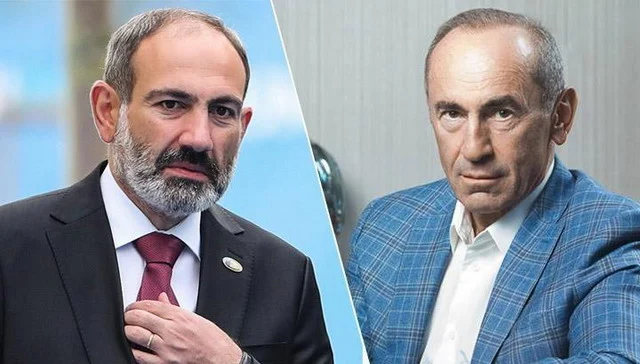Second President of Armenia Robert Kocharyan’s interview with Vladimir Pozner caused some concern among the representatives and supporters of the current government. They rightly believe that the federal channels in Russia are under the strict control of the Kremlin, and from this, they conclude that Moscow prefers to see Kocharyan as the “governor-general” of Armenia. I think that fear is exaggerated. Kocharyan may be “closer to the heart” for Putin personally, but states are not led by the personal sympathies of their leaders, but by national interests. In this regard, it can be said that the current Prime Minister of Armenia does not oppose the will of the Kremlin in any way, and he “gently” implements the plans developed by Putin for the South Caucasus with his friend, Erdogan.
Of course, we can be deceived that we are talking about “unblocking all communication” in particular, but we are not so naive as to not understand that the Turkish plan agreed to with Putin envisages providing only a “corridor” to Azerbaijan through the Syunik region, no matter how the word “corridor” is refuted by our authorities. Is Pashinyan against that program? Does he make any demands towards the main players? Of course not. If Kocharyan becomes Prime Minister, will his behavior be any different? Again, no. So what difference does it make for the Kremlin as far as who will govern Armenia?
The same second president, in response to Pozner’s question about revenge, said that thinking about revenge giving the current situation the army and state are in is unrealistic. And that, of course, is correct. However, according to Kocharyan, everything has not been lost yet, and it is possible to at least restore the former NKAO borders of Artsakh. But how? Kocharyan, most likely, doesn’t know. We don’t know either.
Or, for example, Kocharyan said that it was possible to stop the war in much earlier stages without losing too much territory and thousands of soldiers. That is also correct, of course, but we knew that without Kocharyan having to tell us.
Read also
Therefore, if we move away from our political preferences at the moment, I still do not see how the second president of Armenia is an alternative to the current prime minister. It is not about the good or bad events that took place during his administration, but about Kocharyan today, a politician who is running for the position of Prime Minister in this deplorable situation. Can anyone explain the difference to me without pathos in analytical language?
Aram Abrahamyan




















































